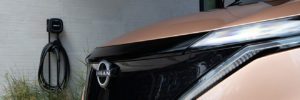Nissan, Japan’s third-biggest automaker by volume, plans to begin producing solid-state batteries for EVs at scale by early 2029, and will also use Tesla-style gigacasting machines in order to increase efficiency and drive down costs on its future EV models.
Solid-state batteries are expected to deliver faster charging and longer lifespans than current Li-ion designs. Even as some automakers begin to deploy them in limited numbers, battery suppliers such as Samsung SDI and CATL disagree over their potential.
Nissan says it will develop solid-state batteries at a new pilot plant in Yokohama before building up production capacity. The company expects to make its first solid-state batteries at the site in 2025, and hopes to produce 100 MWh worth per year starting in 2028.
The automaker also announced plans to use heavy-force machines to produce the rear floors of EVs, a process that it hopes will lower manufacturing costs by 10% and bring down the weight of components by 20%. Nissan has used casting boards for structural parts of air conditioners for over 15 years at its Tochigi plant.
The automaker considered several new processes for manufacturing car bodies, Hideyuki Sakamoto, Executive VP for Manufacturing and Supply Chain Management, told Reuters. “In the end, we decided to use a 6,000-ton gigacasting machine to make the rear body structure of cars using aluminum casting.”
Nissan plans to launch 30 new models over the next three years. Sixteen of these will be electrified, including eight BEVs and four PHEVs.
The automaker says it hopes to bring down the cost of the next generation of plug-in vehicles by 30% to make them competitive with ICE models by 2030.
Source: Reuters
Source: Electric Vehicles Magazine


